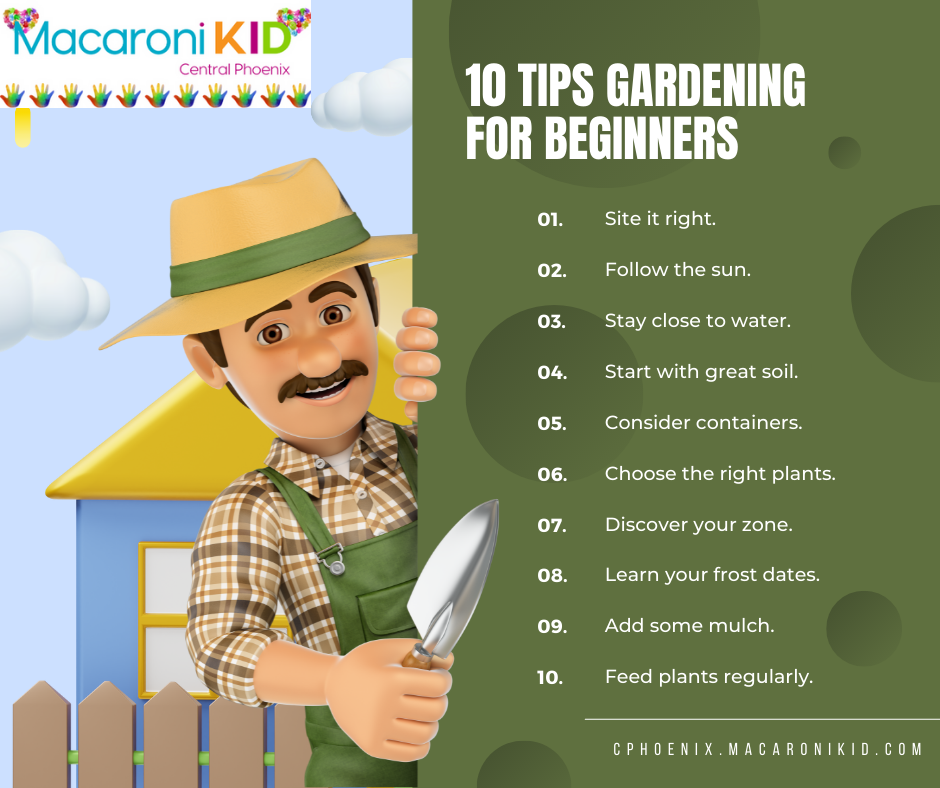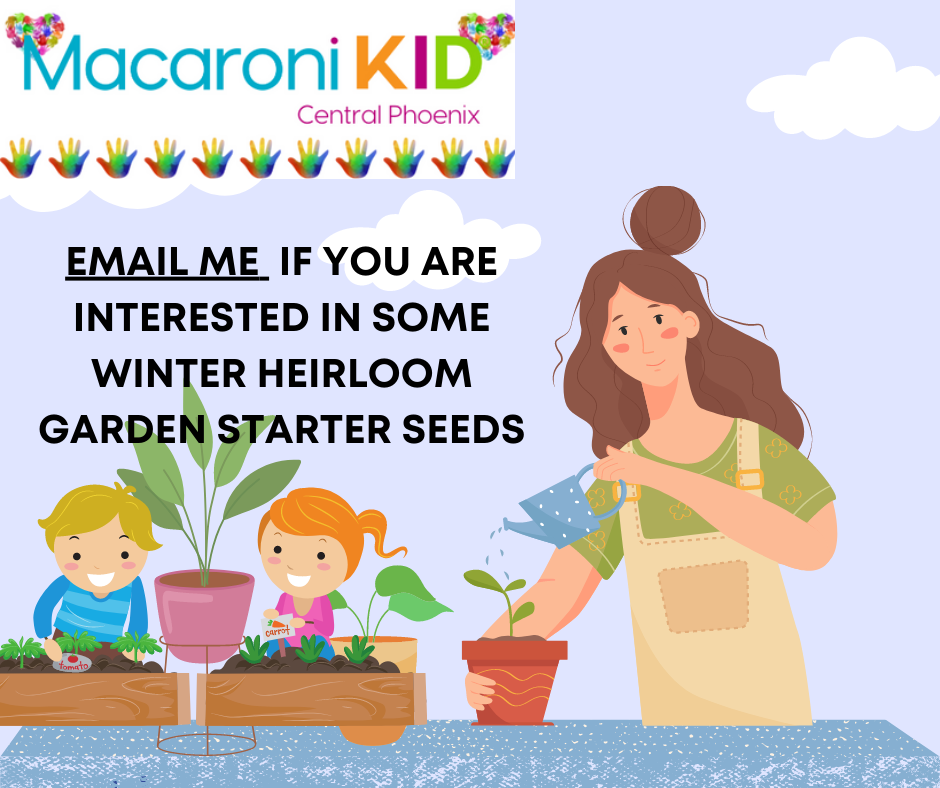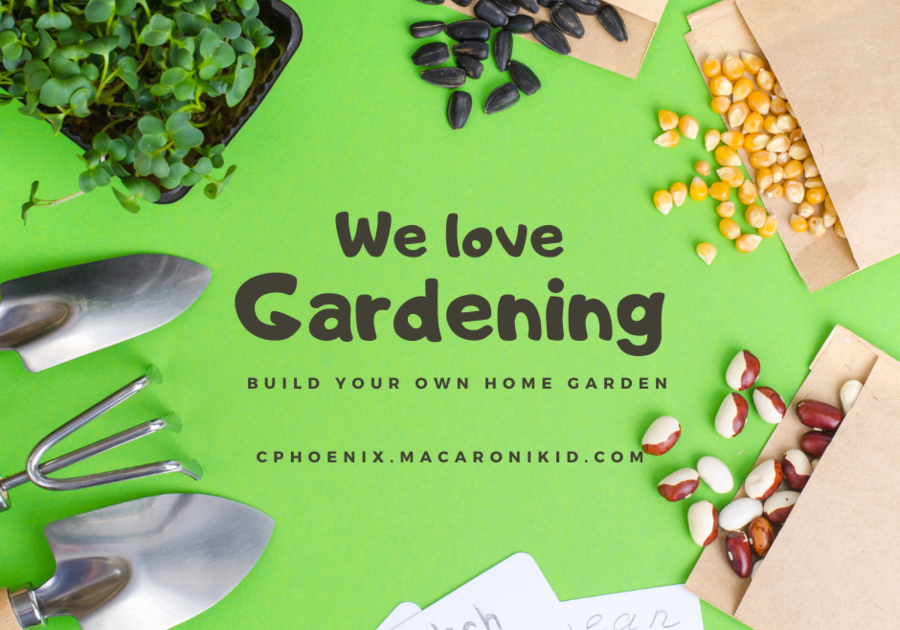Don't you just love Arizona? I know when I moved up north, gardening was not the first thing I was thinking about doing in the winter. All of that changed when I moved back down to Arizona. I recently moved back into a house with a yard and It was one of the things I couldn't wait to do. Gardening can be fun for the whole family. Not only do you get good food out of the deal, you can also spend time together, you get outdoors, and I count it as exercise.

1. Site it right.
Ok I know that this may be a no brainer. Take into consideration what you are planting. How much sun and/or shade are you getting in the area you want to plant? Something to think about though is, if you have plants that need more shade than others, you can make the shade for them.
2. This is something that a lot of people do not think about. Follow the sun. Do your plants require a lot of sun but maybe they're heat sensitive? Maybe consider planting in a place where they get mostly morning sun or vice versa if you have the opposite problem. You do not want to end up with your plants getting way too much 100 plus degree heat. They will end up scorched if they are real sensitive
3. This tip is more so for the people with the big gardens that need more watering. Just keep in mind how far away you are from water, AKA, a hose. The reason I say this is because if you have a large garden that needs watering and you do not have a hose that will reach, that is a lot of back and forth. This year the garden is going to be a new one to me. The last time I had a garden I was on well water. I am really not a fan of the city water so I will be buying all the water for my gardens.
4. Begin with good soil. Do you prefer organic gardening? Or do you use regular soil, miracle grow, and anything that will make your plants bigger and grow faster? Do you use compost for the soil? Different plants take different nutrient. Some plants prefer acidic soils, alkaline soil, and the PH has to be just so. That is kind of for the expert gardener. Myself I do like the organic soil but as far as the nutrients I do what I can I use what I got so far I've had good luck.
5. This one is one of my favorites, consider containers. How many have heard of container gardening? I heard about it years ago because I was looking for a way to garden. I really had no yard. For whatever reason it seems like a few years back anytime I planted seeds in the ground and they started to grow I ended up having to move. It was a curse and so I learned that you can garden on the go. It is also handy when it comes to living in the apartments here. I can't wait to dig in more and provide info about container gardening because everyone can garden if they want.

6. Choosing the right plants. This one is a no-brainer again, but some people do not know that there are certain times to plant different seeds. There are things that grow better in the winter than the summer. Living here in Arizona it's kind of tricky because it seems like it is springtime all year long except for summer. So knowing what to plant, when, is very useful.
7. Discover your zone. The United States is divided up into groups based on their weather altitude what if you go to https://planthardiness.ars.usda.gov/ it will show you the different zones. We are in Zone 10 basically. This is something very handy to know because when you look at seeds and you look at the different times to plant them you will notice that they give the dates for different zones.
8. Learn your frost dates. This is something that we really don't have to worry about too much in Central Phoenix. That is one of the things that I love about living here.
9. Use mulch. This is different organic material used to cover the ground plants especially smaller plants from the weather. You can use it if it gets too hot or cold..
10. Feed plants regularly. this is something that you want to research for every different type of plant. Different plants require different amounts of nutrients or feeding schedules. You can buy different types of plant food or you can make it using a compost. It is completely up to you and the different types of plants you are growing.




